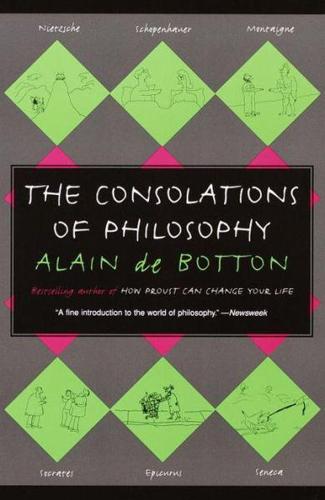
The Consolations of Philosophy
by
Alain de Botton
Published 1 Jan 2000
(Ill. 22.28) Notes Acknowledgements Copyright Acknowledgements Picture Acknowledgements Notes Consolation for Unpopularity Aside from a mention of Aristophanes and quotations from Plato’s Phaedo, the portrait of Socrates is drawn from Plato’s early and middle dialogues (the so-called Socratic dialogues): Apology, Charmides, Crito, Euthydemus, Euthyphro, Gorgias, Hippias Major, Hippias Minor, Ion, Laches, Lysis, Menexenus, Meno, Protagoras and Republic, book I Quotations taken from: The Last Days of Socrates, Plato, translated by Hugh Tredennick, Penguin, 1987 Early Socratic Dialogues, Plato, translated by Iain Lane, Penguin, 1987 Protagoras and Meno, Plato, translated by W. K. C. Guthrie, Penguin, 1987 Gorgias, Plato, translated by Robin Waterfield, OUP, 1994. 1 So … deaths: Apology, 29d 2 Whenever … angle: Laches, 188a 3 Let’s … courageous: Laches, 190e–191a 4 At … battle: Laches, 191c 5 By … inescapable: Meno, 78c–79a 6 I … cities: Apology, 36b 7 I … well-being: Apology, 36d 8 I … fellow-citizen: Apology, 29d 9 I … narrow: Apology, 36a 10 If … choose: Gorgias, 472a-b 11 The … him: Gorgias, 471e–472a 12 When … public: Crito, 47b 13 Don’t … say: Crito, 47a–48a 14 I … time: Apology, 37a–b 15 If … sleeping: Apology, 30d–31a 16 In … off: Phaedo, 116c–d 17 When … himself: Phaedo, 117a-d 18 What … friends!
…
Duncan Large, 1988; Oxford University Press: extracts reprinted from Twilight of the Idols, Friedrich Nietzsche, trans. Duncan Large (Oxford World’s Classics, 1998), by permission of Oxford University Press; extracts reprinted from Parerga and Paralipomena, Arthur Schopenhauer, (volumes I and II, trans. E. F. Payne, 1974) by permission of Oxford University Press; Penguin Books: Early Socratic Dialogues, Plato, trans. Iain Lane, 1987; The Last Days of Socrates, Plato, trans. Hugh Tredennick, 1987; Protagoras and Meno, Plato, trans. W. K. C. Guthrie, 1987; Dialogues and Letters, Seneca, trans. C. D. N. Costa, 1997; Letters from a Stoic, Seneca, trans. Robin Campbell, 1969; The Complete Essays, Michel de Montaigne, trans.
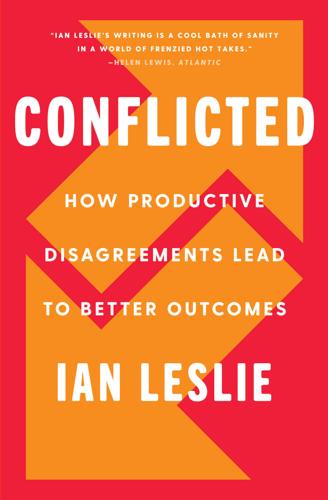
Conflicted: How Productive Disagreements Lead to Better Outcomes
by
Ian Leslie
Published 23 Feb 2021
Enquiry isn’t a status competition, it’s about testing the quality of arguments. Spend time getting clear on your interlocutor’s view, and don’t worry about finding answers – we’re just trying to understand each other a little better. Arguing with someone is a sign of respecting them. From Hippias Minor (one of the accounts of Socrates’ dialogues made by his pupil Plato): ‘Hippias, I don’t dispute that you are wiser than I, but it is always my custom to pay attention when someone is saying something, especially when the speaker seems to me to be wise. And because I desire to learn what he means, I question him thoroughly . . . so I can learn.’
…
The arguments are then weighed against each other, before one or other answer is chosen, or a third one is found. Disputation was competitive; the goal was to convince each other, or an audience. But it was also believed that by examining a problem from different angles, new truths could emerge. The practice was essentially Socratic dialogue, formalised and scaled up. Historians of the period talk of the ‘institutionalisation of conflict’. Institutions have a habit of stagnating. In the sixteenth century, Renaissance thinkers criticised universities for indulging in arid intellectual debates instead of engaging with the real world.
…
The result is a much deeper and more rigorous thought process than any one of you could have carried out alone. That’s exactly how the Wikipedia editing process works, according to James Evans’s study. It’s how Warren Buffett designs the decision-making process for investment. It’s the principle that underlies Socratic dialogue. Looked at through the interactionist lens, confirmation bias isn’t something to eliminate; it’s something to harness. Under the right conditions, it raises the collective intelligence of a group. What are those conditions? First, the group must disagree openly, with each individual feeling genuinely compelled, and able, to put their best case forward.
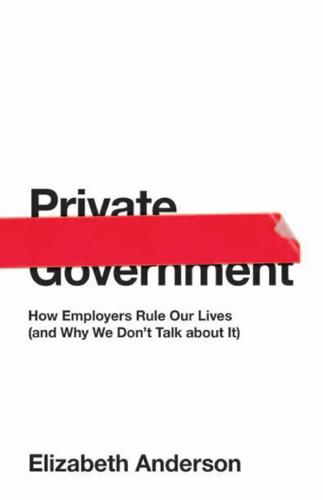
Private Government: How Employers Rule Our Lives (And Why We Don't Talk About It)
by
Elizabeth S. Anderson
Published 22 May 2017
FitzRoy and Kornelius Kraft, “Co-Determination, Efficiency, and Productivity,” IZA Discussion Paper Series, No. 1442 (2004), http://hdl.handle.net/10419/20741; Steffen Mueller, “The Productivity Effect of Non-Union Representation,” BGPE Discussion Paper No. 74 (2009), http://hdl.handle.net/10419/73422. 41. Brad Delong, “Hoisted from the Archives: A Non-Socratic Dialogue on Social Welfare Functions” (Brad DeLong’s Semi-Daily Journal, 2009), http://delong.typepad.com/sdj/2009/04/hoisted-from-the-archives-a-non-socratic-dialogue-on-social-welfare-functions.html. Contributors Elizabeth Anderson is Arthur F. Thurnau Professor and John Dewey Distinguished University Professor of Philosophy and Women’s Studies at the University of Michigan.
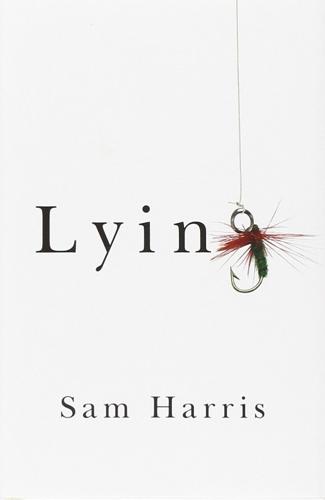
Lying
by
Sam Harris
Published 31 Aug 2011
Many of us spend our lives marching with open eyes toward remorse, regret, guilt, and disappointment.And nowhere do our injuries seem more casually self-inflicted, or the suffering we create more disproportionate to the needs of the moment, than in the lies we tell to other human beings. Lying is the royal road to chaos. As an undergraduate at Stanford I took a seminar that profoundly changed my life. It was called “The Ethical Analyst,” and it was conducted in the form of a Socratic dialogue by an extraordinarily gifted professor, Ronald A. Howard.[1] Our discussion focused on a single question of practical ethics: Is it wrong to lie? At first glance, this may seem a scant foundation for an entire college course. After all, most people already believe that lying is generally wrong—and they also know that some situations seem to warrant it.
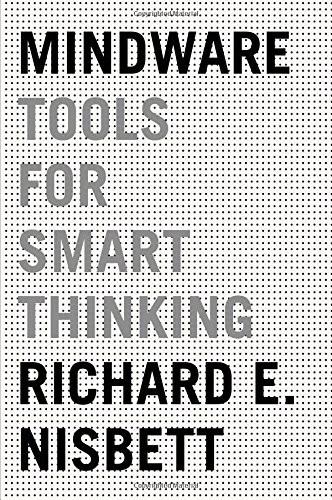
Mindware: Tools for Smart Thinking
by
Richard E. Nisbett
Published 17 Aug 2015
A very different kind of system of reasoning, also developed about twenty-six hundred years ago in Greece, and developed at the same time in India, is called dialectical reasoning. This form of reasoning doesn’t so much regulate reasoning as suggest ways to solve problems. Dialectical reasoning includes the Socratic dialogue, which is essentially a conversation or debate between two people trying to reach the truth by stimulating critical thinking, clarifying ideas, and discovering contradictions that may prompt the discussants to develop views that are more coherent and more likely to be correct or useful. Eighteenth- and nineteenth-century versions of dialectical reasoning, owing primarily to the philosophers Hegel, Kant, and Fichte, center on the process of “thesis” followed by “antithesis” followed by “synthesis”—a proposition followed by a potential contradiction of that proposition, followed by a synthesis that resolves any contradiction.
…
There is a strong presumption that contradictions often are merely apparent, and an inclination to believe that “A is right but not A is not wrong.” This stance is captured by the Zen Buddhist dictum that “the opposite of a great truth is also true.” To many Westerners, these notions may seem reasonable and even familiar. The Socratic dialogue, often called dialectical, is similar in some ways. This is a conversation exchanging different viewpoints, with the goal of more closely approaching the truth. Jews borrowed that version of dialectical thinking from the Greeks, and Talmudic scholars developed it over the next two millennia and more.
…
Smith, Adam social conflict social desirability bias social facilitation effect social psychology; context in; experiments in; founding of; fundamental attribution error in; microeconomics and; in political campaigns; reality in; social influence in Social Security Social Text Socrates Socratic dialogue Sokal, Alan South Carolina Soviet Union Speed (movie) Spender, Stephen Sperber, Dan spreading activation standard deviation (SD); for IQs; for observations Standard & Poor’s Stanford University; Graduate School of Business statistical dependence statistical heuristics statistical independence status quo stereotypes Stich, Stephen stimuli; incidental Stoic philosophers Stoler, Ann Structure of Scientific Revolutions, The (Kuhn) Subaru subliminal perception and persuasion Summers, Lawrence sunk costs Sunstein, Cass Sweden syllogisms Talmudic scholars Tanzania Tao Tennessee Texas text, reality as Thaler, Richard theology Thorndike, Edward Time magazine Towers of Hanoi problem Toyota tragedy of the commons training, transfer of traits; behaviors related to; correlations for; role-related “Transgressing the Boundaries” (Sokal) Triplett, Norman Turkish language Tversky, Amos Twain, Mark uncertainty unconscious mind; rational Unitarians United States; academic performance in; allergies in; autism diagnosis in; crime prevention programs in; death penalty in; dialectical thinking in; health issues in; history teachers in; homicide versus suicide deaths in; incarceration rate in; income ranges in; life insurance coverage in; manufacturing in; minority advancement in armed forces of; national election polls in; oil reserves of; per capita GDP in; pragmatism in; product choice in; Social Security program in; subjectivist view in; vaccination in; values and beliefs in vaccination validity; of arguments; reliability and value: expected; of human life; monetary, in cost-benefit analysis; sentimental; of sunk costs and opportunity costs Van Buren, Abigail (Dear Abby) variables; continuous; control; correlation of; economic; outcome; predictor; regression to the mean of; see also dependent variables; independent variables Varnum, Michael Venn, John Venn diagrams Vermont Volkswagen von Neuman, John Wall Street Journal, The Washington, University of Washington State Institute for Public Policy Western culture, difference between Eastern culture and, see cultural differences West Germany What Works Clearinghouse Whitehead, Alfred North William of Occam Wilson, Timothy within designs World Economic Forum Zajonc, Robert Zen Buddhism Zeno Zhang, Yitang Zipcars A NOTE ABOUT THE AUTHOR Richard E.
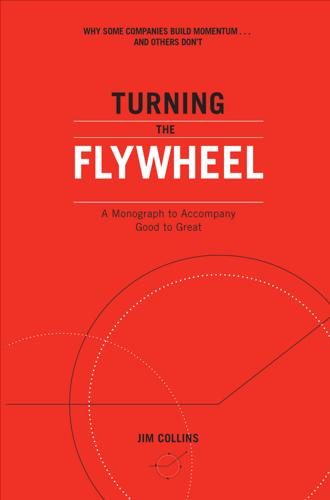
Turning the Flywheel: A Monograph to Accompany Good to Great
by
Jim Collins
Published 26 Feb 2019
But before you decide to toss out your flywheel, first make sure you understand its underlying architecture. Don’t abandon a great flywheel when it would be a superior strategy to sustain, renew, and extend. STEPS TO CAPTURING YOUR FLYWHEEL So, then, how might you go about capturing your own flywheel? At our management lab, we’ve developed a basic process, refined during Socratic-dialogue sessions with a wide range of organizations. Here are the essential steps: Create a list of significant replicable successes your enterprise has achieved. This should include new initiatives and offerings that have far exceeded expectations. Compile a list of failures and disappointments. This should include new initiatives and offerings by your enterprise that have failed outright or fell far below expectations.
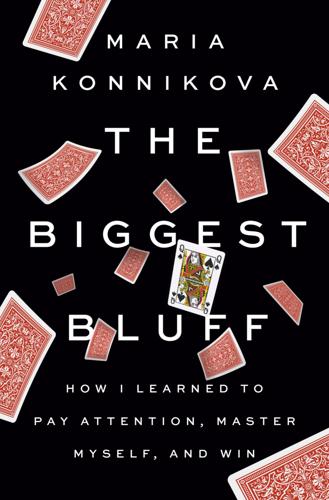
The Biggest Bluff: How I Learned to Pay Attention, Master Myself, and Win
by
Maria Konnikova
Published 22 Jun 2020
Our conversations remain more theoretical than I would ideally prefer. It strikes me that the experience feels somehow familiar, this dynamic of back-and-forth with no real answers forthcoming to any of my questions—or, rather, the only answer being one of “Well, it depends; why don’t we think it through for ourselves?” It’s not quite a Socratic dialogue—Erik doesn’t keep me hanging to that extent—but it’s an interaction that focuses more on process than prescription, on exploration rather than destination. When I complain that it would be helpful to know at least his opinion on how I should play a hand, he gives me a smile and tells me a story.
…
See also Lodden Thinks prostitution, 295 psychedelics, 269 psychology and psychology research and academic value of poker, 21–22 on attentiveness, 148 and author’s background, 11–12 author’s dissertation defense, 164–65 and author’s pitch for project, 27–29 and changes in poker world, 8–9 and effects of time pressure, 75 and Galfond, 157 and gender biases, 102 and illusion of control, 62–63 and locus of control, 109–10, 134 and Lodden Thinks, 184–88, 197–98, 207 and luck/superstition, 300 and skills of poker players, 270 and stereotypes and thin-slice judgments, 196–205 and value of statistical edge, 80–81 Quadradius, 292 quantitative and qualitative elements of poker, 8 quitting poker, 59 raising and aggression in charity events, 99–100 and CAPS model of behavior, 220 defined, 330 and key skills of poker, 36 and nonverbal cues, 213 and online play, 73 and stereotypes and thin-slice judgments, 196, 203 VPIP metric, 168 randomness and variance and aggressive play, 56, 99 and author’s pitch for project, 12–13 and financial swings, 124 flow view of, 150–51, 153 and ignoring bad beats, 133, 134–36 and meritocracy view of poker, 139–40 and money swings, 317 and nature of streaks, 123 and races, 163 and swings in poker fortunes, 60–62 See also certainty and uncertainty; chance; probability and statistics rationality and irrationality and academic value of poker, 21–22 and author’s progress as player, 250 and Dunning-Kruger effect, 242–43 Kant on, 38–39 and Magriel, 307–11 and misogyny in poker world, 165 and planning fallacy, 238–39 Sagan on, 325 and standardizing playing behaviors, 217 and superstition, 297–98, 303, 306–7 and tilting, 253–55, 257–58 reading players and attentiveness at the table, 144 and behavioral profiles, 211–15, 215–18, 218–26, 222 and Caro, 66 and conversation at the table, 217–18 and hand motions, 206–9, 213–14, 216–17 and online play, 77–78 skills leading to WSOP, 227–28 and stereotypes and thin-slice judgments, 195–205 and sweating, 140–41 See also tells Reber, Arthur, 70 rebuys, 200, 232–34, 243, 330 return on investment (ROI), 37–38, 243 RFID readers, 212 Richards-Ross, Sanya, 302 riffling chips, 51, 129, 229 rigged decks, 44 Rio and author’s poker schedule, 320 contrasted with Macau, 307 and food options in Vegas, 314 and World Series of Poker, 3, 152, 230, 233–34, 244 Risen, Jane, 243, 303 risk and risk-management and behavioral profiles, 222–23 calibration of, 42 and CAPS model of behavior, 221–22 and chopping prize pools, 265–66 and financial swings, 124 as goal of poker project, 237 and managing cash rates, 191 and swapping, 123 and WSOP Main Event, 248 Ritalin, 269 river cards and angle shooters, 130 and attentiveness at the table, 144, 147 and author’s progress as player, 201, 225, 274, 277, 279–80, 282, 286 and board texture, 78–80 defined, 330 and famous Seidel showdown, 84 and fundamentals of poker, 23 rote learning, 158–59 Rotter, Julian, 109–10 roulette, 34, 60, 173–74 Rounders (film), 10–11 Run it Once (RIO), 156, 169, 229 Russia, 19 Sagan, Carl, 325 salary negotiations, 101–2 Salle des Étoiles (Room of Stars), 175 Salomon Brothers, 165 Salter, James, 19 Sands, 295 Schelling, Thomas, 24, 80 Schott, Webster, 133 Schwarz, Norbert, 254–55 Seidel, Erik and advent of televised poker, 81–82 on aggression in poker, 55–56, 98–100 on attentiveness, 142–44, 147, 208 and author’s first Vegas play, 120–22, 124–28, 131–33, 135–36, 166–69 and author’s PCA title event, 265, 271–73, 289–90 and author’s pitch for project, 11, 12, 26–30 and author’s WSOP goal, 4–5, 31, 51–52, 126–27, 157–58, 169, 192–93, 239–40, 243–44 and backgammon, 46–48, 61, 181–83, 307–9 background, 7–11, 60–61 on bankroll management, 124–25 on Caro, 66 and charity events, 96–98, 103–4, 106, 111–14 coaching plan and teaching process, 50–53, 64–65, 71–76, 77–81, 96, 120, 263–64 on degenning, 179 on Galfond, 155, 156 giving nature of, 31 and Harrington, 47–49, 50 on ignoring bad beats, 132–36, 252, 314 on illusion of control, 63 Lichtenberger on, 152 and Macau, 296 on managing cash rates, 189–92 open-mindedness, 63–64 on safety of Monte Carlo, 180 and skill of poker, 35 style of play, 58, 81–88, 141, 161, 290 on superstitions, 306–7, 309 walking excursions, 52–53 on Washington Square gamers, 46 and WSOP events, 10–11, 37, 234–35 Seidel, Ruah, 61, 157, 289 Seiver, Scott, 268, 305 Selbst, Vanessa, 97 self-awareness and assessment and author’s WSOP goal, 240–41 and chopping prize pools, 265–66 and donkey space, 226 as key to successful play, 59 and lessons of poker, 326 and mental habits, 134 and “M” metric, 57 and nonverbal cues, 211–15 and physical cues, 209 self-reinforcing actions, 312–13 and skipping events, 244 and tilting, 256 sets (three-of-a-kind hands), 132, 225, 248, 274, 299, 327–28, 330 seven-deuce hands, 56 Shakespeare, William, 43 Shannon, Claude, 60 sharks, 130–31 Shoda, Yuichi, 219 showdowns, 10, 37, 53, 80, 85, 278, 330 side betting, 46 Siegel, Benjamin “Bugsy,” 118 Silicon Valley, 17 Silver, Max, 98 Silver, Nate, 39–40 Sit ’n’ Go tables, 89 six-max games, 189, 224–25, 235 skepticism, 66 skill and academic value of poker, 21 vs. chance, 17, 26, 32, 326 as key element of poker, 35–38, 45–46 overestimation of, 14 and Seidel’s style of play, 61 Sklansky, David, 48–49 Slavin, Kevin, 281, 291 sleep and sleep aids, 267–71 Slepian, Michael, 205, 249 Smith, Dan, 138 snap calls, 196 snap fold, 98 SnapShove, 98, 158 socialization, 101–3 socially acceptable gambling, 70 social media, 3, 290 Socratic dialogue, 64–65 solvers, 145, 146, 205 speaking career of author, 169 speech play, 218 split pots, 53. See also chopping prize pools sponsorships, 290, 296 sports betting, 69, 179 staking players, 123. See also sponsorships Stapleton, Joe, 84 static boards, 79 statistics.
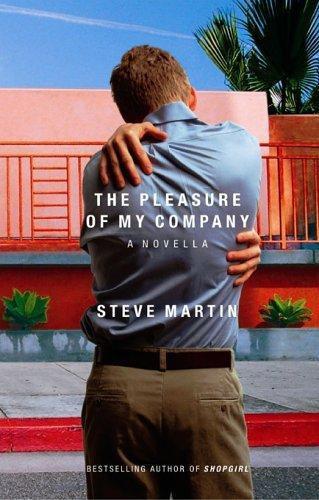
The Pleasure of My Company
by
Steve Martin
Published 1 Oct 2003
I held my breath for silence, then slowly let it out without moving my chest. Eventually this technique caught up with me and I had to occasionally gasp for air. But no one killed me that night, no knife penetrated the blanket, no hand grabbed at my throat. Looking back, I can identify the cause of my panic. It was that my earlier Socratic dialogue with myself about the nature of love had no Socrates to keep me logical. There was just me, seesawing between the poles. There was no one to correct me and consequently no thought necessarily implied the next, in fact, a thought would often contradict its predecessor. I had tried to force clarity on my confused logic, and this disturbed my demanding sense of order.
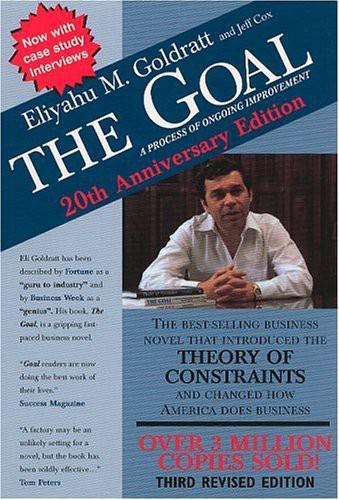
The Goal: A Process of Ongoing Improvement - 30th Anniversary Edition
by
Eliyahu M. Goldratt
Published 1 Jun 2012
Wouldn’t such a technique be a powerful management tool?’’ "Without a doubt,’’ says Lou. "But what’s the point in daydreaming?’’ "And what happened to you today?’’ I ask Julie, after I’ve told her the day’s events in detail. "I spent some time in the library. Do you know that Socrates didn’t write anything? Socrates’ dialogues actually were written by his pupil, Plato. The librarian here is a very pleasant woman, I like her a lot. Anyhow, she recommended some of the dialogues and I’ve started to read them.’’ I can’t hold my surprise, "You read philosophy! What for, isn’t it boring?’’ She grins at me, "You were talking about the Socratic method as a method to persuade other people.
…
Things that we never thought were related start to be strongly connected to each other. One single common cause is the reason for a very large spectrum of different effects. You know Julie, it’s like order is built out of chaos. What can be more beautiful than that?’’ With glittering eyes she asks, "Do you know what you have just described? The Socratic dialogues. They’re done in exactly the same way, through exactly the same relationship, IF . . . THEN. Maybe the only difference is that the facts do not concern material but human behavior.’’ "Interesting, very interesting. Come to think about it,’’ I say, "my field, management, involves both material and people behavior.
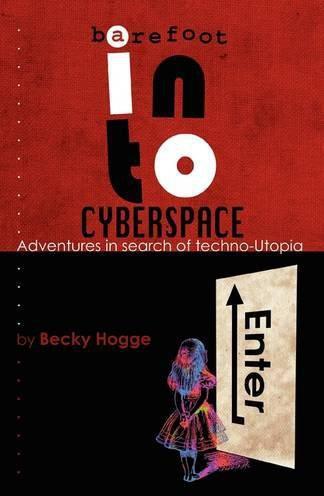
Barefoot Into Cyberspace: Adventures in Search of Techno-Utopia
by
Becky Hogge
,
Damien Morris
and
Christopher Scally
Published 26 Jul 2011
He establishes an underground digital communications network, based on chipped Xboxes loaded with free software, organising flash mobs of teenage protest and culture-jamming the DHS surveillance systems in an attempt to hold a mirror to the rights abuses of the DHS for long enough to pierce the adults’ assurance that the new regime is in their best interests. Marcus’s relationship with his father exists as a kind of Socratic dialogue on the ethical aspects of the surveillance society, woven through the book as Marcus becomes more and more embroiled with the Department of Homeland Security’s total surveillance of San Francisco’s citizens. Just like Cory’s father, Marcus’s dad was a radical in his youth. But by the time we get to the events of Little Brother, he’s earning his keep and saving up for Marcus’ college education by consulting to “third-wave dotcoms that are doing various things with archives” in Silicon Valley.
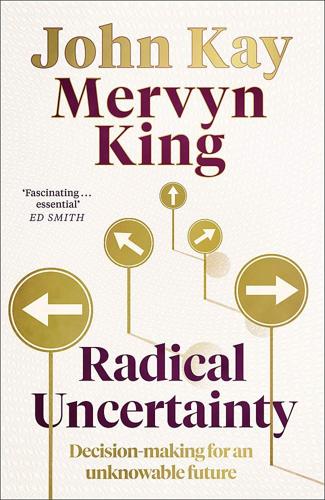
Radical Uncertainty: Decision-Making for an Unknowable Future
by
Mervyn King
and
John Kay
Published 5 Mar 2020
Up to a point; the primatologist Richard Wrangham has described how even among chimpanzees males are aggressive and selfish and only the sexually promiscuous bonobos display the degree of niceness which prompts humans to show strangers the way. 12 But the capacity of humans to communicate with each other through language is one of the factors – perhaps the most important factor – distinguishing us from other species. This emphasis on communication reinforces the notion that what may be ‘biases’ in individual problem-solving behaviour in well-defined puzzles are actually advantageous in the group resolution of the ill-defined problems posed by uncertainty. The Socratic dialogue is a long-established method of seeking truth by exposing the competing arguments of protagonists. The objective in all these processes is to find, through group interaction, a narrative to which all can subscribe – and to set a course of future action in the light of that narrative. The observations of participants contribute to that narrative, and the meaning of these observations is derived from the context in which they are made. 13 Evolution gave us a capacity to reason which, as a 2017 book by two French researchers in cognitive science, Hugo Mercier and Dan Sperber, explains, ‘is not geared to solitary use’. 14 Evolution has produced the collective intelligence and social norms and institutions which are ‘the secret of our success’; these social capabilities provide the reason that humans dominate the planet. 15 Multiple levels of evolutionary selection If social groups developed the division of labour and the mutualisation of risk-sharing, and subsequent millennia took these socio-economic innovations to unsurpassed levels, the outcome was equally unsurpassed levels of prosperity.
…
J., 198 , 201 , 203–4 , 206 , 217 Singell, Larry, 74 , 78 Slaughter, Anne-Marie, 214 Sloan, Alfred, 286–7 , 412 small world models: Arrow–Debreu world, 343–5 ; and behavioural economics experiments, 116 , 141–7 ; and classical statistics, 247 ; and engineering, 352–6 ; and framing of problems, 261 , 362 , 398–400 ; and legal reasoning, 203 , 204 ; and machine intelligence, 173–7 , 185 , 263 ; of Malthus and Jevons, 358–62 ; maps as not the territory, 391–4 ; and narratives, 249–61 , 303–4 , 307–10 , 320–1 , 346 , 385 , 397 ; and non-human species, 274 ; as not ‘the world as it really is’, 96 , 100 , 252–5 , 261 , 309–10 , 320 , 342–5 , 346–51 , 352–5 , 376 , 399–400 ; and optimising behaviour, 112–13 , 116 , 129 – 30 , 155 , 166 , 170 , 334 , 382 , 399–400 ; and policy making, 346–9 ; and risk in finance theory, 421 ; and Savage’s analysis, 112–14 , 249 , 309–10 , 345 ; and styles of reasoning, 137–9 smartphones, 30–1 , 344 Smets, Philippe, 78–9 Smith, Adam, 163 , 254 , 343 , 382 , 387 ; The Wealth of Nations , 172 , 190 , 191 , 249 , 253 Smith, Ed, 263–4 Smith, John Maynard, 158 Snow, Dr John, 283 social choice theory, 440 social insurance, 161 , 192 , 427 social media, 351 social relationships: and altruism, 157 , 158 , 159–60 ; cooperation/collective intelligence, 155 , 162 , 176 , 231 , 272–7 , 279–82 , 343 , 412 , 413–17 , 432 ; economic advantages of cooperating, 159 , 160–1 ; and entrepreneurship, 431–2 ; and evolutionary science, 156–65 , 401 ; human capacity for communication/language, 159 , 161 , 162 , 172–3 , 216 , 272–7 , 408 ; mutualisation of risk, 160 , 162 , 192 , 325–6 ; networks of trust/cooperation/coordination, 17 , 155 , 272 , 274–6 , 432 ; process of forming expectations, 350–1 ; reciprocity in, 190–2 , 328 ; round of drinks phenomenon, 189–90 ; social class structure, 324 ; social kinship groups, 156 , 159–62 , 215–16 , 325 , 328–9 , 413–14 ; and trust, 162–3 , 165 social welfare, xiv–xv , 41 Socratic dialogue, 162 Solomon, King, 196 Solow, Robert, 42 Sony, 28 Soros, George, 36 , 319–20 , 336 South Korea, chaebol of, 276 South Sea bubble, 315 Soviet Union, 276 , 279 , 280 , 281 Spanish flu, 57 spectrum auctions, 257 Spence, Michael, 254 Spencer, Herbert, 157–8 Sperber, Dan, 162 , 272 , 415 St Athanasius, 99 St Francis, 116 , 127 , 130 , 167 Stalin, Joseph, 25 , 219 , 292 standard deviation, 234 Stanford, Leland, 48–9 , 427 Stanford University, 49 stationarity (mathematical/statistical term): as assumed in modelling, 333 , 339 , 340–1 , 349 , 350 , 366–7 , 371–2 , 382 ; and astronomical laws, 70 ; China and Japan’s turn inwards, 419–20 , 430 ; economics as ‘non-stationary’, 16 , 35–6 , 45–6 , 102 , 236 , 339–41 , 349 , 350 , 394–6 ; and the environment, 362 ; evolution as ‘non-stationary’, 407 , 428–9 , 430–1 ; financial sector as non-stationary, 16 , 202–3 , 268–9 , 320–1 , 331 , 333 , 339 , 366–8 , 402–3 , 406 ; and frequency distribution, 58 , 69–70 , 87 , 202 , 247 , 327 ; ‘Goodhart’s Law’, 36 ; and insurance underwriting, 327 ; and mortality tables, 57 , 69 ; and natural phenomena, 39 ; and opinion pollsters’ models, 242 ; and planetary motion, 18–19 , 35 , 373–4 , 392 , 394 ; and progress in science, 429–31 ; and reflexivity, 36 , 394 ; and resolvable uncertainties, 37 ; and risk-averse individuals, 306 ; and scientific reasoning, 18–19 , 35 , 236 , 373–4 , 388 , 392 , 429–31 ; and Value at risk models (VaR), 366–8 statistical discrimination, 207–9 , 415 statistics, xiii , xvi ; 25 standard deviation events, 6 , 68 , 235 , 331 , 366 ; bell-shaped ‘normal’ distribution, 57–8 , 233–5 , 237 ; classical statisticians, 58 , 247 ; false stories and bogus statistics, 242–6 ; frequency distribution, 38 , 40 , 57–8 , 69–70 , 72 , 86 , 87 , 202 , 247 ; lognormal distribution, 237 , 238 ; measures of central tendency , 237 ; models ignoring radical uncertainty, 15–16 ; opinion pollsters’ models, 240–2 , 390 ; power laws, 236–9 ; quota sampling, 240–1 ; random sampling, 234 , 239–41 ; ‘randomised controlled trials’ (RCTs), 243–5 ; regression analysis, 351 ; ‘scale invariance’, 238 ; standard deviation, 234 ; statistical distributions, 232–6 ; tails of ‘normal’ distribution, 14 , 40 , 166 , 233 , 234–5 , 401 ; see also probabilistic reasoning; subjective probabilities Stewkley church, 376 Stiglitz, Joseph, 254 Stockdale, Admiral James, 167–8 , 330 stomach ulcers, 284 Stoppard, Tom, Travesties , 89 strategy weekends, 180–3 , 194 , 296 , 407 string theory, 219 , 357 STS-119 space shuttle, 374 subjective probabilities: and 9 /11 terror attacks, 74–6 , 202 ; Appiah’s ‘cognitive angels’, 117–18 ; and belief in emerging scientific truth, 100 ; and Chicago School, 73–4 , 342–3 ; definition of term, 72 ; details of problem specification, 76–8 ; Ellsberg’s ‘ambiguity aversion’, 135 ; expected utility , 111–14 , 115–18 , 124–5 , 127 , 128–30 , 135 , 400 , 435–44 ; and extension of probabilistic reasoning, 71–2 ; Keynes and Knight, 72 ; and linguistic ambiguity, 98 , 100 ; and narrative complexity, 218–19 ; ‘pignistic probability’, 78–84 , 438 ; Ramsey describes, 73 ; ‘rational expectations theory, 342–5 , 346–50 ; small world-large world distinctions, 112–14 , 116 , 129–30 , 137–9 , 141–7 , 155 , 166 , 170 , 171 , 173–7 , 382 , 400 ; see also small world models; triumph over radical uncertainty, 15–16 , 20 , 72–84 , 110–14 ; two-child problem, 76–8 , 81 , 98 , 139 ; see also axiomatic rationality ‘sudden infant death syndrome’ (SIDS), 197–8 , 200–1 , 202 , 204 Suez crisis (1956), 174 Sumerians, 39 Survation, 242 Suter, Johann, 427 Sutter, John, 48–9 Swiss Re, 325–6 Switzerland, 418–19 , 426 , 428 Syrian conflict, 99 , 428 Tacoma Narrows Bridge collapse (1940), 33 , 341 Taleb, Nassim Nicholas, 14 , 38–9 , 166 , 422 , 438–9 Tay Bridge disaster (1879), 33 , 341 technological advances, 161 , 258 , 275–6 , 315 , 329 , 362 , 373–4 ; America’s innovative hegemony in, 427–8 ; and evolutionary science, 429 , 430 , 431 Tehran embassy siege (1979), 8 terrorism, 7 , 74–6 , 202 , 220 , 230 , 296 Tetlock, Philip, 21–2 , 221–2 , 294–5 Thaler, Richard, 118 , 148 Thales of Miletus, 303–4 , 319 , 320 , 422 Thames embankments, London, 424–5 Thatcher, Margaret, 290–2 , 412 Theranos, 228–9 Thiel, Peter, 361–2 , 427 The Third Man (film, 1949), 418–19 Thompson, Warren, 359 Thorp, Edward, 38 , 83 Tinbergen, Jan, 134 , 341 , 346 Tolkien, J.
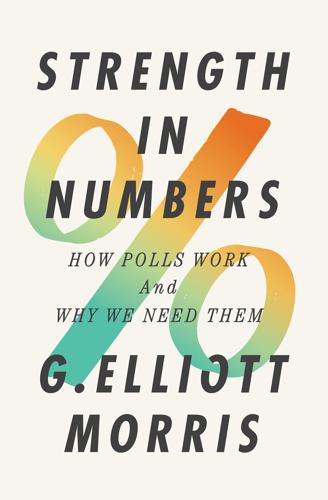
Strength in Numbers: How Polls Work and Why We Need Them
by
G. Elliott Morris
Published 11 Jul 2022
Plato, like other classical philosophers, did not write extensively about the role of the masses in a democracy, but what he did write about the subject is important enough to the development of political philosophy that it is worth a brief discussion. Plato was a skeptic of pure democracy (as were many of America’s founders), which he thought was too susceptible to power-seeking politicians and demagogues who would corrupt the democratic system and lead the state into tyranny.21 In the Republic, his famous work recounting Socratic dialogues about the ideal government, Plato writes: “Come then, tell me, dear friend, how tyranny arises. That it is an outgrowth of democracy is fairly plain.” “Yes, plain.” “Is it, then, in a sense, in the same way in which democracy arises out of oligarchy that tyranny arises from democracy?” Plato is speaking about the potential folly of giving power to the people.
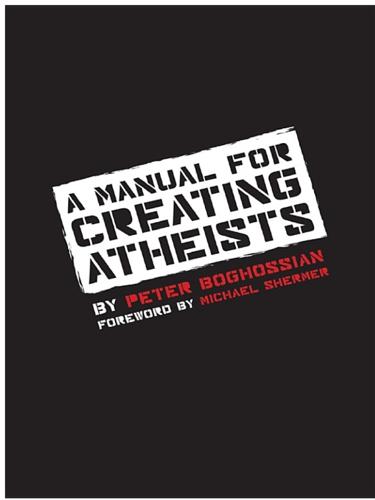
A Manual for Creating Atheists
by
Peter Boghossian
Published 1 Nov 2013
And you seem to think that you should be allowed to do something that harms you and not be allowed to do something that harms you. Does that make sense to you?” 10th Grader: “Not really” —Peter Boghossian, “The Socratic Method (or, Having a Right to Get Stoned)” “Often as a consequence of sustained Socratic dialogue, one realizes that one did not know something that one thought one knew.” —Peter Boghossian, “Socratic Pedagogy” The purpose of this chapter is to demonstrate how to use the Socratic method as a conversational intervention to liberate people of their faith. The Socratic method may sound complicated, but essentially it’s asking questions and getting answers.
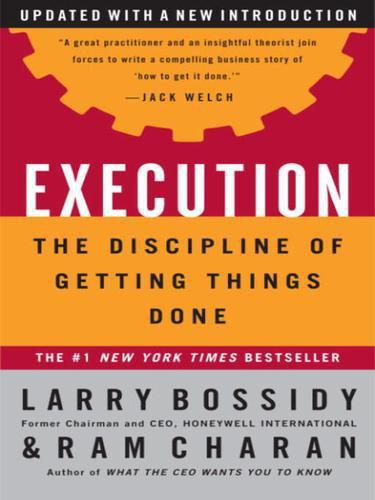
Execution: The Discipline of Getting Things Done
by
Larry Bossidy
Published 10 Nov 2009
Making a personal connection has nothing to do with style. You don’t have to be charismatic or a salesperson. I don’t care what your personality is. But you need to show up with an open mind and a positive demeanor. Be informal, and have a sense of humor. A business review should take the form of a Socratic dialogue, not an interrogation. All you’ve got to prove is that you care for the people who are working for you. Whatever your respective personalities are, that’s the personal connection. The personal connection is especially critical when a leader starts something new. The business world is full of failed initiatives.
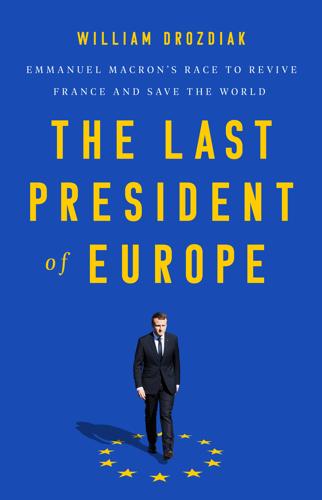
The Last President of Europe: Emmanuel Macron's Race to Revive France and Save the World
by
William Drozdiak
Published 27 Apr 2020
“I need you to help me carry this project forward,” Macron told the group, which included historians, philosophers, sociologists, and climate change experts. “You have a responsibility to help me structure this national debate. Not all opinions have the same value; intellectuals should know more things because they’ve read more books.”12 For nearly eight hours, Macron conducted a Socratic dialogue with the smartest minds in Europe over topics that included Algeria’s revolution, the separation of church and state, psychiatry, the rise of a carbon-neutral economy, the social impact of in-vitro fertilization, and the finer distinctions between narrative and coagulated identity. Well past midnight, Macron finally broached the subject of what to do with the Yellow Vest movement.
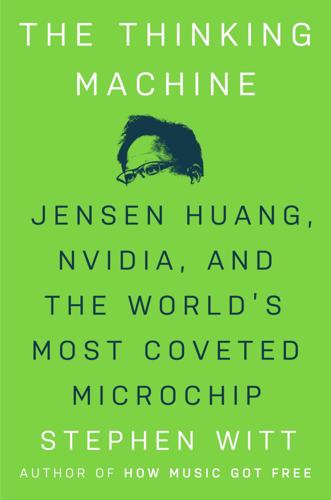
The Thinking Machine: Jensen Huang, Nvidia, and the World's Most Coveted Microchip
by
Stephen Witt
Published 8 Apr 2025
The offer of a job hinged on what came next. Often, candidates would lie or try to make something up. That was an automatic fail. Others would admit blankly that they didn’t know. That was usually a fail, too. The engineers who passed the test were those who realized they were participating not in a job interview but a Socratic dialogue. These engineers could walk back through the series of questions that had led up to this point, then advance their knowledge in the interview, using the previous answers to figure out the new one. In fifteen minutes, Kirk learned more about the candidate’s capabilities than his staff had in eight hours of structured interviews—and his staff learned how to ask the right questions
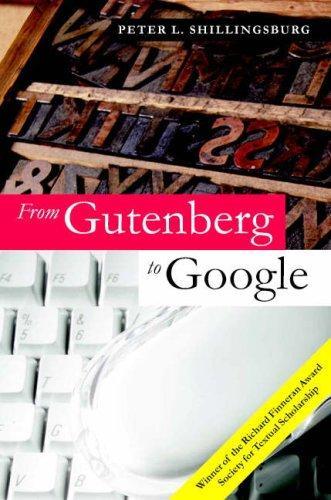
From Gutenberg to Google: electronic representations of literary texts
by
Peter L. Shillingsburg
Published 15 Jan 2006
‘‘In Between the ‘Royal Way’ of Philology and ‘Occult Science’: Some Remarks About German Discussion on Text Constitution in the Last Ten Years.’’ TEXT 12 (1999), 31–47. ‘‘Teaching Editing–Learning Editing.’’ Problems of Editing biehefte zu editio, ed. Christa Jansohn (1999). Plato. ‘‘Ion,’’ Translated by. Trevor J. Saunders. in Plato: Early Socratic Dialogues. London: Penguin, 1987. Phaedras. Translated by R. Hackforth. Cambridge: Cambridge University Press, 1952. Republic. Translated by Robin Waterfield. Oxford: Oxford University Press, 1993. Postal, Paul M. Skeptical Linguistic Essays. www.nyu.edu/gsas/dept/lingu/people/ faculty/postal/papers/skeptical.pdf (downloaded 4 July 2003).
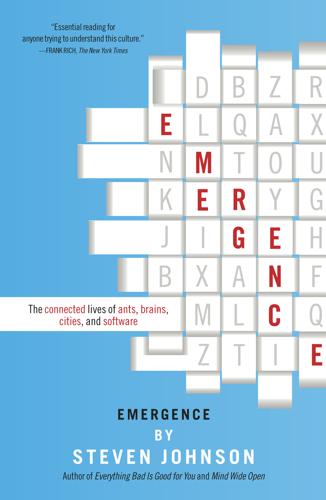
Emergence
by
Steven Johnson
By making one’s moderation powers expendable, he created the crucial property of scarcity. With only one or the other, the currency is valueless; combine the two, and you have a standard for pricing community participation that actually works. The connection between pricing and feedback is itself more than a metaphor. As a character in Jane Jacobs’s recent Socratic dialogue, The Nature of Economies, observes: “Adam Smith, back in 1775, identified prices of goods and rates of wages as feedback information, although of course he didn’t call it that because the word feedback was not in the vocabulary at the time. But he understood the idea. . . . In his sober way, Smith was clearly excited about the marvelous form of order he’d discovered, as well he should have been.
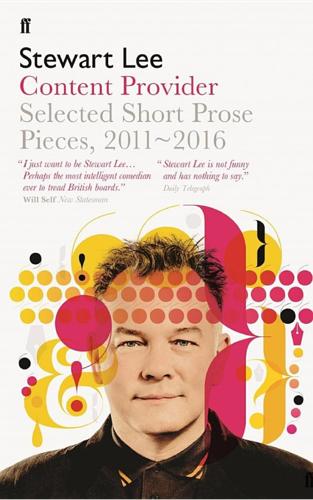
Content Provider: Selected Short Prose Pieces, 2011–2016
by
Stewart Lee
Published 1 Aug 2016
Clowns ranged through the village, making erotic overtures to elderly disabled women, showing disdain for the beautiful, throwing food in the faces of dining Anglo-American dignitaries, hurling Christian crosses from the roofs of buildings, and doing all this to force onlookers to consider what kind of a society they wanted to live in, and to assess the professed values of the society they already had. Mainstream media condemn Corbyn’s actions. On social media, free from editorial interference, those same actions receive almost blanket approval. The satirical counterweight of the Corbyn shaman clown has forced society to enact its own Socratic dialogue. Should we bow to queens? Should we sing songs that profess spiritual and political beliefs we do not have? Should we speak to Sky reporters? People on the right shake with fury at Corbyn, corbyning him mercilessly, while people on the old left tremble with anxiety over what further damage he may do to their already ruined party.
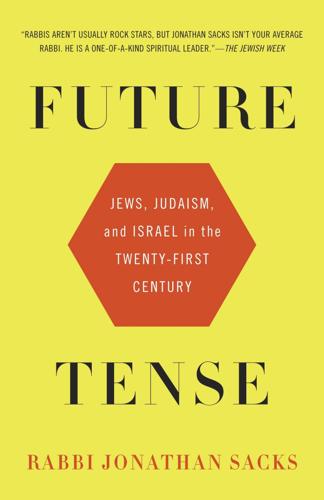
Future Tense: Jews, Judaism, and Israel in the Twenty-First Century
by
Jonathan Sacks
Published 19 Apr 2010
And I speak of conversation, not ‘dialogue’, because dialogue today is associated with formal, staged encounters in which the various sides come with prepared positions. We have a surfeit of dialogues: between faiths, between religion and science, between cultures and between civilisations. Dialogues are rarely genuine encounters. Franz Rosenzweig once pointed out that Socrates’ dialogues—the greatest of their kind in philosophy—are boring, because you know in advance where they will end.2 Socrates will show that the person with whom he is talking does not really understand what he thinks he believes. The second person in the dialogue is essentially a foil for Socrates’ genius, as the only person, according to the Delphic oracle, who knew he didn’t know.
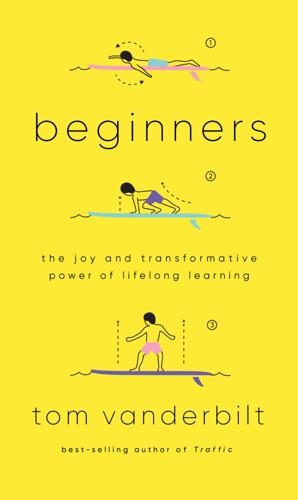
Beginners: The Joy and Transformative Power of Lifelong Learning
by
Tom Vanderbilt
Published 5 Jan 2021
THE DRAWING THAT DRAWS ITSELF: MY ADVENTURES IN ART SCHOOL Stepping from the busy sidewalks of Tribeca, with its upmarket boutiques and spin-class studios, into the New York Academy of Art, you felt as if you’d accidentally wandered into an ancient Greek agora. There were plaster columns, replicas of busts by classical sculptors, statues of muscular nudes. You half expected to stumble across a Socratic dialogue in the lobby. Housed in a five-story nineteenth-century warehouse once home to bookbinders and parasol makers, the academy was founded in 1982 by a group of people who were concerned that as art had become increasingly minimalist and conceptual, art schools were sending graduates into the world lacking many of the traditional skills of drawing and painting.
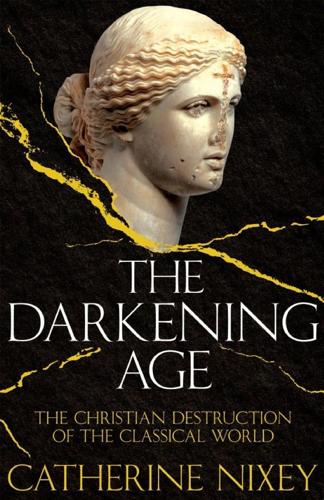
The Darkening Age: The Christian Destruction of the Classical World
by
Catherine Nixey
Published 20 Sep 2017
Another scholar, during the reign of Julian the Apostate – who forbade anyone who didn’t believe in the old gods to teach works such as Homer that contained them – redrafted the entirety of biblical history in twenty-four books of Homeric hexameter and recast the Epistles and the Gospels into the form of Socratic dialogues. Fanciful intellectual genealogies were invented to defend Christianity’s favourite philosophers. Long-dead thinkers who happened to have any resemblances to Christianity in their writings found themselves adopted as unwitting ancestors in the tradition. The whiff of Christianity hung around Plato?
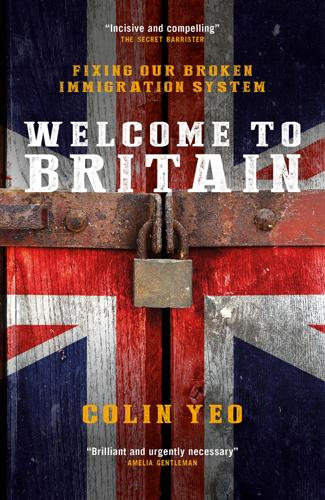
Welcome to Britain: Fixing Our Broken Immigration System
by
Colin Yeo;
Published 15 Feb 2020
We know that a client is unlikely to have perfect recall of the events about which they will be questioned, and we know that even if they can remember, they will be reluctant to disclose such horrible traumas, even to a sympathetic interviewer – which many are not. Good solicitors will spend many hours in multiple meetings with a client to try to piece together an account of what happened and when. The idea is that by answering questions, over time the client might, in a modern-day process of Socratic dialogue, eventually settle on what he or she considers, on reflection, to be a single version of the ‘truth’ of what happened. This will then be set out in black and white in a witness statement, at which point the ambiguity and uncertainty appears to the outside world to have fallen away. We lawyers know that this ends up producing an artificially certain, sanitised version of ‘the truth’, but we also know that failing to go through this process with a client is to consign that client to an inevitable refusal.
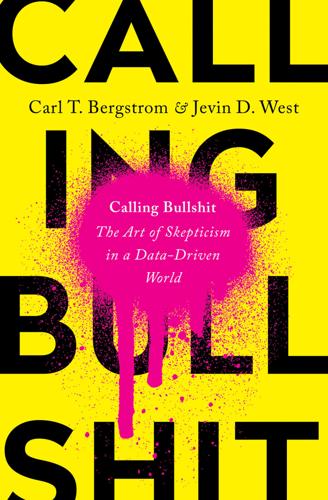
Calling Bullshit: The Art of Scepticism in a Data-Driven World
by
Jevin D. West
and
Carl T. Bergstrom
Published 3 Aug 2020
It is a book about how we are inundated with it, about how we can learn to see through it, and about how we can fight back. First things first, though. We would like to understand what bullshit is, where it comes from, and why so much of it is produced. To answer these questions, it is helpful to look back into deep time at the origins of the phenomenon. Bullshit is not a modern invention. In one of his Socratic dialogues, Euthydemus, Plato complains that the philosophers known as the Sophists are indifferent to what is actually true and are interested only in winning arguments. In other words, they are bullshit artists. But if we want to trace bullshit back to its origins, we have to look a lot further back than any human civilization.

The Sirens' Call: How Attention Became the World's Most Endangered Resource
by
Chris Hayes
Published 28 Jan 2025
Public affairs shows like Crossfire, The McLaughlin Group, and countless hours of cable news through the years (some of which I’ve been a part of!) use this sturdy framework. A debate is a kind of attentional regime, a formal means of regulating where and how attention will flow. Any kind of discourse, from the simple getting-to-know-you chitchat on a first date to Plato’s Socratic dialogues, requires either an explicit or implicit attentional regime. The attentional regime can take a variety of forms so long as it prescribes where the attention rests at any given moment. Indigenous tribes of the Pacific Northwest would use a “talking stick” as a means of regulating attention during powwows and deliberative sessions.
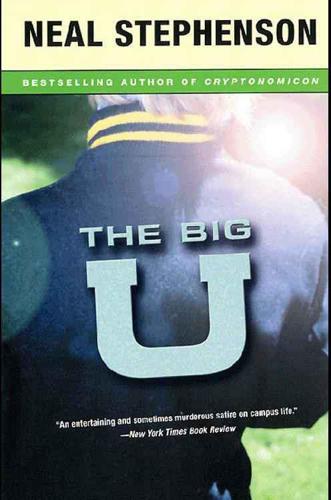
The Big U
by
Neal Stephenson
Published 2 Jan 1984
All the Crotobaltislavonians had gone inside, and the professors, finding themselves in an empty lot with only the remains of a few dozen steers to keep them company, decided to re-deploy inside the Plex. There things were noisier. People who never engage in violence are quick to talk about it, especially when the people they are arguing with are elderly Greek professors unlikely to be carrying tire chains or knives. Of course, the Greek professors, who tried to engage the picketers in Socratic dialogue as they broke the picket lines, were not subject to much more than occasional pushing. Among younger academics there were genuine fights. A monetarist from Connecticut finally came to blows with an Algerian Maoist with whom he’d been trading scathing articles ever since they had shared an office as grad students.
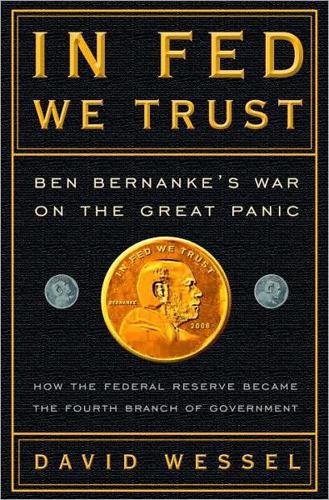
In FED We Trust: Ben Bernanke's War on the Great Panic
by
David Wessel
Published 3 Aug 2009
Early in September, as the crises continued, the Fed made a deal with a nearby Subway to stock a refrigerator on the governors’ corridor with turkey and ham sandwiches — each with an individual expiration date. The emergency rations came in handy that night. Finally, the Fed officials conducted a Socratic dialogue — via telephone — with Bair and her staff to speed up the decision. “Has your staff told you what the [FDIC fund’s] expected loss is with Citi?” they asked. “We think it is zero,” said Bair. In other words, the most likely scenario wouldn’t require the FDIC to absorb any losses. And Wells?
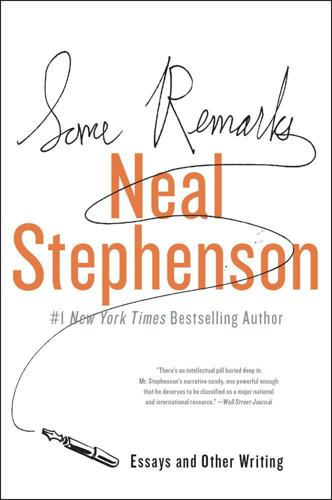
Some Remarks
by
Neal Stephenson
Published 6 Aug 2012
But they’re nervous that Emperor Xerxes of Persia, not the freedom-loving Leonidas, might be George Bush. Our so-called conservatives, who have cut all ties to their own intellectual moorings, now espouse policies and personalities that would get them laughed out of Periclean Athens. The few conservatives still able to hold up one end of a Socratic dialogue are those in the ostracized libertarian wing—interestingly enough, a group with a disproportionately high representation among fans of speculative fiction. The less politicized majority, who perhaps would like to draw inspiration from this story without glossing over the crazy and defective aspects of Spartan society, have turned, in droves, to a film from the alternative cultural universe of fantasy and science fiction.
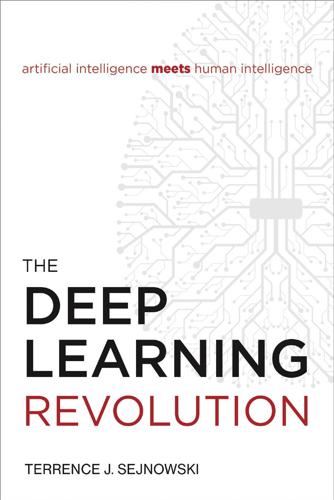
The Deep Learning Revolution (The MIT Press)
by
Terrence J. Sejnowski
Published 27 Sep 2018
Decades after his discovery, in 1977, Crick had moved to the Salk Institute for Biological Studies in La Jolla and shifted his research focus to neuroscience. He would invite researchers to visit him and have a long discussion on many topics in neuroscience, especially on vision, and David Marr was one of those visitors. At the end of Marr’s book, there is a revealing discussion in the form of a Socratic dialogue, a dialogue I later learned had arisen from Marr’s discussions with Crick. On moving to the Salk Institute in 1989, I, too, came to appreciate the value of having a dialogue with Crick. George Boole and Machine Learning In 1854, a self-taught British schoolteacher who had five daughters, some of whom were mathematically inclined, wrote a book entitled An Investigation of the Laws of Thought, which was the mathematical foundation for what is now called “Boolean logic.”
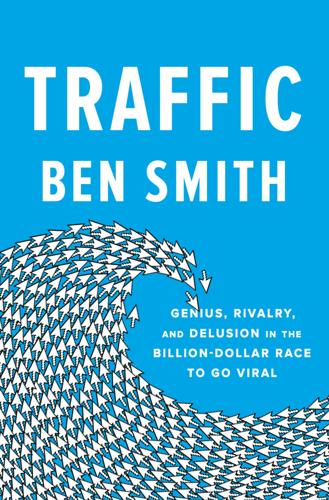
Traffic: Genius, Rivalry, and Delusion in the Billion-Dollar Race to Go Viral
by
Ben Smith
Published 2 May 2023
Jon’s father was a top Manhattan real estate broker, and he’d taught his son the industry wisdom that the first offer you get is probably the best one. Steinberg got down on his knees on the balcony to plead with Jonah to take the deal. While I receded into a corner, alternately spaced out and laughing hysterically, and while Steinberg begged, Jonah grew even more abstracted than usual. He conducted a kind of Socratic dialogue with Steinberg in which he seemed at times to be talking to himself. He asked why Steinberg really wanted to do the deal, and Steinberg scrambled to give whatever answer would push Jonah toward yes. You just want money, right? Yes, Jon said. But is it really money you want? Or is it status? You don’t just want a house—you want it in the right part of the Hamptons, right?
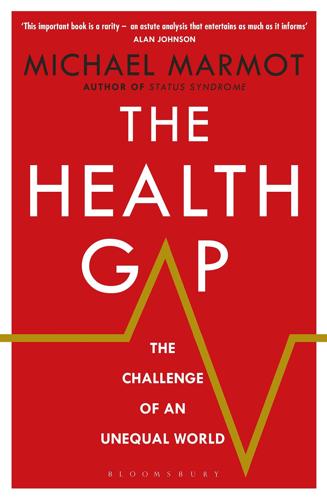
The Health Gap: The Challenge of an Unequal World
by
Michael Marmot
Published 9 Sep 2015
I want to know, therefore, which approach to social justice helps provide the framework for understanding and the impetus for action on health inequities. My guide has been Professor Michael Sandel, although he doesn’t know it.4 He teaches a philosophy class at Harvard which apparently is regularly oversubscribed. Having seen him in action at my own university, I can see why. He uses everyday problems and controversies, examined in lucid Socratic dialogues with his audience, to draw out principles of political philosophy. He does not provide me with an answer to social justice and health but he provides a framework for thinking about it. Sandel distinguishes three approaches to social justice: •maximising welfare, •promoting freedom, and •rewarding virtue.
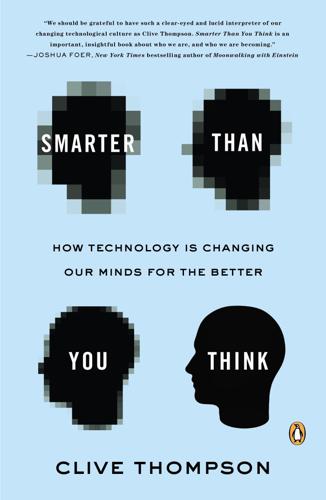
Smarter Than You Think: How Technology Is Changing Our Minds for the Better
by
Clive Thompson
Published 11 Sep 2013
“Questions are a really useful service for curing writer’s block,” as Charlie Cheever, the soft-spoken cofounder of Quora, tells me. “You might think you want to start a blog, but you wind up being afraid to write a blog post because there’s this sense of, who asked you?” Question answering provides a built-in, instant audience of at least one—the original asker. This is another legacy of Plato’s Socratic dialogues, in which Socrates asks questions of his debating partners (often faux-naive, concern-trolling ones, of course) and they pose questions of him in turn. Web authors long ago turned this into a literary form that has blossomed: the FAQ, a set of mock-Socratic questions authors pose to themselves as a way of organizing information.
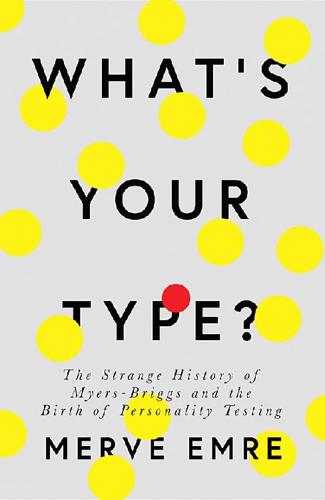
What’s Your Type?
by
Merve Emre
Published 16 Aug 2018
In writing “Meet Yourself,” Katharine had placed her finger on the nerve center of type’s appeal: the promise that, within each person, there lived a coherent individual who was master of her own life. This was by no means an original sentiment. Western philosophy had, for centuries, set forth a similar argument, from the Socratic dialogues to the writings of the Cynics, the Stoics, the Epicureans, and even the early Christians. In 1734, Alexander Pope had started his poem “An Essay on Man” with the command “Know then thyself, presume not God to scan, / The proper study of mankind is Man.” In 1750, Benjamin Franklin, one of Katharine’s heroes, had quipped, “There are three Things extremely hard, Steel, a Diamond, and to know one’s self.”
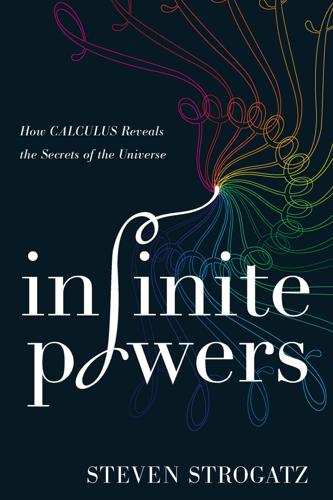
Infinite Powers: How Calculus Reveals the Secrets of the Universe
by
Steven Strogatz
Published 31 Mar 2019
In his understandable reverence for his old master, Viviani was known to have embellished a tale or two when he wrote Galileo’s biography years after his death. But even if the story is apocryphal (and it may not be!), we do know for sure that Galileo performed careful experiments with pendulums as early as 1602 and that he wrote about them in 1638 in Two New Sciences. In that book, which is structured as a Socratic dialogue, one of the characters sounds like he was right there in the cathedral with the dreamy young student: “Thousands of times I have observed vibrations especially in churches where lamps, suspended by long cords, had been inadvertently set into motion.” The rest of the dialogue expounds on the claim that a pendulum takes the same amount of time to traverse an arc of any size.
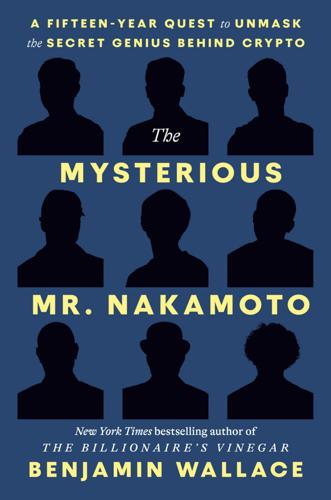
The Mysterious Mr. Nakamoto: A Fifteen-Year Quest to Unmask the Secret Genius Behind Crypto
by
Benjamin Wallace
Published 18 Mar 2025
Craig was peacocking, that day, in a slate-gray pinstripe three-piece suit, a dark red shirt with French cuffs, a black-and-red patterned tie, and scarlet socks. Though he was a pariah outside the BSV bubble, before the curated crowd he paced the dais waving a Sharpie and holding forth, engaging his listeners in a Socratic dialogue and occasionally pausing to jot something on a whiteboard. At one point, he held up a bound volume he’d found in the glassed-in shelves at the back of the room and apparently flipped through. “The book here is lying. The Complete Works of Shakespeare,” he said with a smirk. “They don’t have ‘Timon of Athens.’ ” Someone laughed politely.
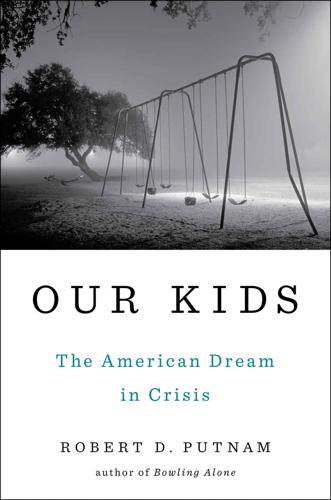
Our Kids: The American Dream in Crisis
by
Robert D. Putnam
Published 10 Mar 2015
These class differences show up in parents’ actual behavior, not just their avowed priorities. Simone can’t recall ever punishing Desmond (not even “no TV for a week”). Carl likens a parent sometimes to a soccer referee (“That’s when you pull that parental card and say, ‘This is it’ ”), but as his kids got older, he preferred Socratic dialogue (“Explain to me why you are doing that. Have you thought of this?”). By contrast, Stephanie, whose parents “beat the hell” out of her, believes in very tough love (“You can’t be soft. You gotta be hard, really hard”). Despite the undoubted fact that she “love[s her] kids to death,” her first response to disobedience is a beating.
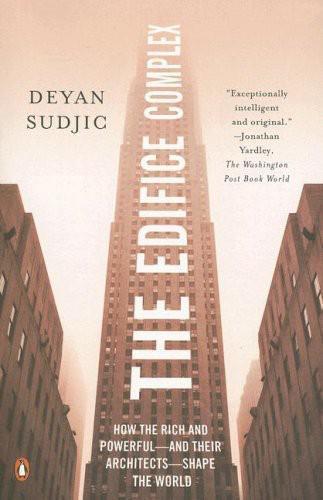
The Edifice Complex: How the Rich and Powerful--And Their Architects--Shape the World
by
Deyan Sudjic
Published 27 Nov 2006
The Technical University of Hamburg-Harburg, known by its initials as TUHH, is one of Germany’s newest universities, established only in 1982. It has a suburban campus close to the River Elbe. It sits in a complex of mainly new buildings that have at their heart an agora stepped into semi-circular tiers for Socratic dialogue, a reflection of the belief of the town planning department’s dean, Professor Dittmar Machule, in the virtues of traditional urban forms. Machule received a grant from the German Vibrant Cities Foundation to conduct a research programme to determine what makes a city centre lively. But it was more likely that it was Machule’s work in Aleppo, the 5,000-year-old Syrian city, funded by the German Government’s technical assistance programme for conservation and rehabilitation, that attracted Atta to Hamburg in 1992.
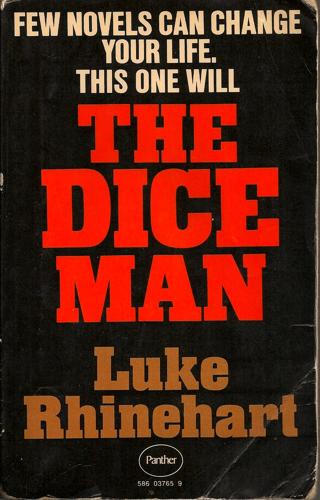
The Dice Man
by
Luke Rhinehart
Published 1 Jan 1971
Chapter Thirty-four I had only one session with Eric Cannon to try to introduce him to dice therapy, because he and his father had reached some kind of agreement whereby Eric was to be released three days later. He was naturally keyed up about leaving and didn't listen carefully as I began a Socratic dialogue to get him into dice therapy. Unfortunately, the Socratic method entails a second person at least willing to grunt periodically and since Eric remained absolutely mute I gave up and told him in a twenty-minute lecture what a dicelife was all about. He became quite alert. When I'd finished he shook his head from side to side slowly.
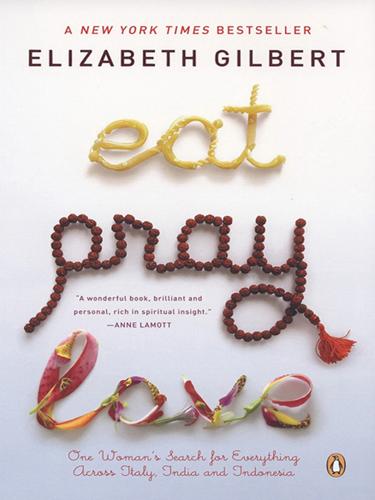
Eat, Pray, Love: One Woman's Search for Everything Across Italy, India and Indonesia
by
Elizabeth Gilbert
Published 1 Jan 2000
The Gurugita does have an impressive spiritual lineage; it’s an excerpt from a holy ancient scripture of Yoga called the Skanda Purana, most of which has been lost, and little of which has been translated out of Sanskrit. Like much of Yogic scripture, it’s written in the form of a conversation, an almost Socratic dialogue. The conversation is between the goddess Parvati and the almighty, all-encompassing god Shiva. Parvati and Shiva are the divine embodiment of creativity (the feminine) and consciousness (the masculine). She is the generative energy of the universe; he is its formless wisdom. Whatever Shiva imagines, Parvati brings to life.
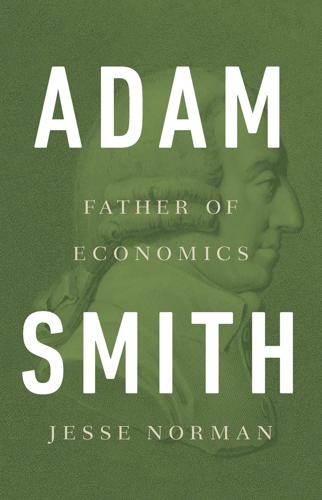
Adam Smith: Father of Economics
by
Jesse Norman
Published 30 Jun 2018
They discussed what had evidently become a rather ticklish issue for Smith. Hume had appointed him as his literary executor in January, and given him a legacy of £200 in his will. Yet it was Hume’s earnest desire that his Dialogues Concerning Natural Religion should be published after his death. Framed in the style of Plato’s Socratic dialogues, the Dialogues explored—and in some cases exploded—a wide range of contemporary religious arguments, in particular as to whether belief in God was reliant on revelation or could be grounded in evidence from nature and the temporal world. They were brilliant, amusing and, Smith acknowledged, ‘finely written’.
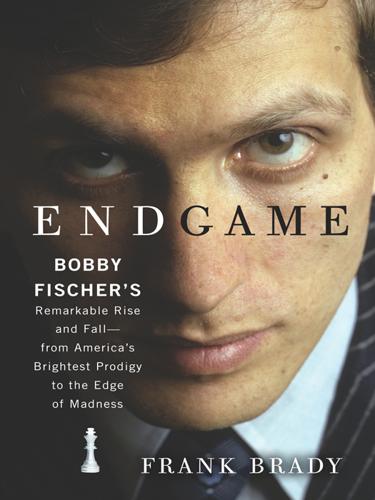
Endgame: Bobby Fischer's Remarkable Rise and Fall - From America's Brightest Prodigy to the Edge of Madness
by
Frank Brady
Published 1 Feb 2011
Home in his apartment in Brooklyn, Bobby went through what was becoming his routine: elimination of social engagements, long periods of solitary study, analysis of games, and a search for innovations in openings. He classified the lines he studied into stratifications of importance, always eliminating the not-quite-perfect continuation and seeking what he called the “true move,” that which could not be refuted. A Socratic dialogue raged within him: How unusual was the resulting position if he followed that particular line? Would his opponent feel at sea? Would he (Bobby) feel comfortable playing it? How would he ground himself if he had to continue to play that variation until the endgame? Grandmaster Pal Benko, a former Hungarian freedom fighter who became a U.S. citizen and, like many other chess players, an investment broker, entered Bobby’s room at the Hotel Intercontinental in Curaçao shortly after Arthur Bisguier, Bobby’s second, had arrived.
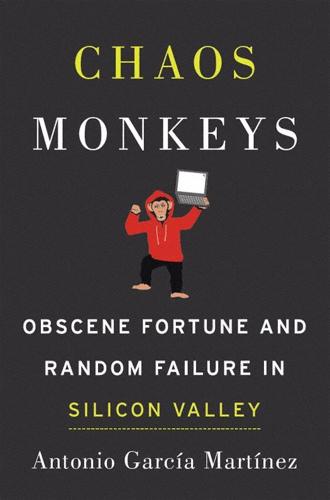
Chaos Monkeys: Obscene Fortune and Random Failure in Silicon Valley
by
Antonio Garcia Martinez
Published 27 Jun 2016
.§ PG is the leading apostle, to not say messiah, of the startup gospel, and other than maybe Marc Andreeson, possesses the only prose style among techies that doesn’t trigger a literary gag reflex. His lucid essays dispense with any ego and pretense, and read like a how-to manual for the tech endeavor. Reflecting his background in philosophy and formal logic, his tightly argued disquisitions often read almost syllogistically, like a Socratic dialogue, as he dissects funding rounds, hiring, cash flow, and product development. Having forgotten the URL to his essay library, I entered “ycombinator.com” into my browser. The minimalist website carried a picture of a geek in a weird orange-walled room, some links to press coverage, and one link that was tantalizingly titled “Apply to get funded.
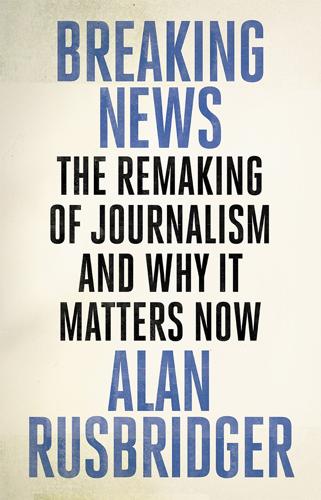
Breaking News: The Remaking of Journalism and Why It Matters Now
by
Alan Rusbridger
Published 14 Oct 2018
How could they possibly do their research, read and talk to people – let alone write – if they had to spend half a day in not-very-fruitful conversations with readers? Some loved it. They found a new, easy tone of voice – the opposite of the conventional ‘columnar’ timbre – and would spend hours in their threads chatting away. Some were put off by the aggression, ignorance and spite they encountered in the threads. We might have wished for an elegant Socratic dialogue, but the responses could sometimes feel more like graffiti. ‘Think about your own tone of voice,’ Emily or George would sometimes tell disheartened or dismayed columnists. ‘Can you see how you yourself sound? Your own stridency or aggression is bound to provoke an equal and opposite response.’
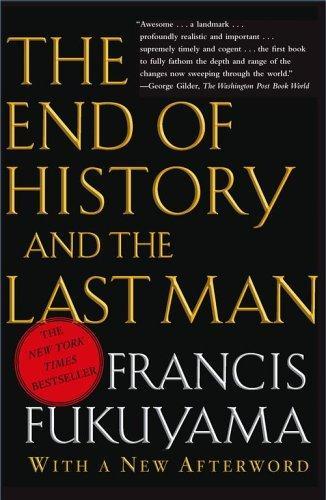
The end of history and the last man
by
Francis Fukuyama
Published 28 Feb 2006
Others have asserted that for Hegel, the dialectic was a metaphysical device that allowed one to deduce the whole of human history from a priori or logical first principles, independently of empirical data and knowledge of real historical events. This view of the dialectic is untenable; a reading of Hegel’s historical works will reveal that historical accident and contingency play a large role in them.19 The Hegelian dialectic is similar to its Platonic predecessor, the Socratic dialogue, that is, a conversation between two human beings on some important subject like the nature of the good or the meaning of justice. Such discussions are resolved on the basis of the principle of contradiction: that is, the less self-contradictory side wins, or, if both are found in the course of the conversation to be self-contradictory, then a third position emerges free of the contradictions of the initial two.
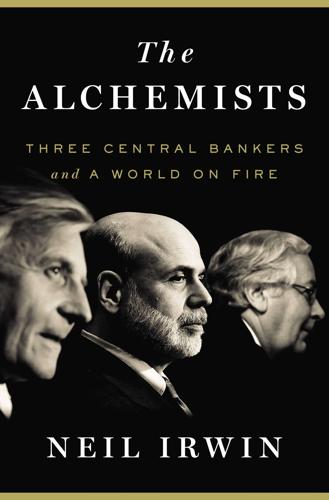
The Alchemists: Three Central Bankers and a World on Fire
by
Neil Irwin
Published 4 Apr 2013
When it wasn’t international central bankers pummeling the Fed, it was animated bunnies. In a seven-minute YouTube video created by Omid Malekan, then a thirty-year-old real estate manager, two animated animals with computer-generated voices—whether they were in fact rabbits or bears or pigs or dogs was hard to say—engaged in a Socratic dialogue about “the quantitative easing” that had been launched by “the Ben Bernank” to benefit “the Goldman Sachs.” The video went viral; by mid-December, it had been viewed 3.5 million times. That November, after two of Bernanke’s closest advisers at the Fed, Governor Kevin Warsh and communications chief Michelle Smith, had each been sent links to the video multiple times, they concluded that they needed to show it to the chairman.
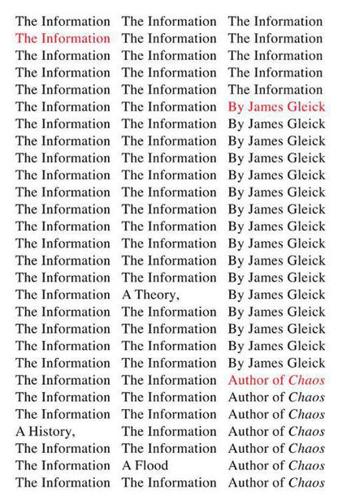
The Information: A History, a Theory, a Flood
by
James Gleick
Published 1 Mar 2011
They possessed structure, by analogy with buildings. They were made of plot and diction. Aristotle could now see the works of the bards as “representations of life,” born of the natural impulse toward imitation that begins in childhood. But he had also to account for other writing with other purposes—the Socratic dialogues, for example, and medical or scientific treatises—and this general type of work, including, presumably, his own, “happens, up to the present day, to have no name.”♦ Under construction was a whole realm of abstraction, forcibly divorced from the concrete. Havelock described it as cultural warfare, a new consciousness and a new language at war with the old consciousness and the old language: “Their conflict produced essential and permanent contributions to the vocabulary of all abstract thought.
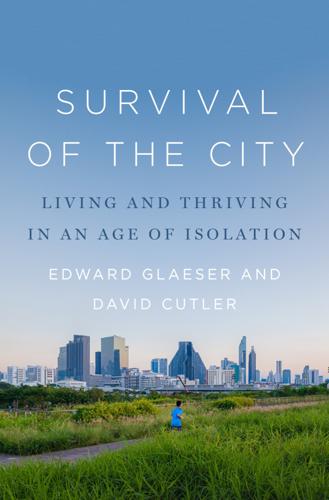
The Survival of the City: Human Flourishing in an Age of Isolation
by
Edward Glaeser
and
David Cutler
Published 14 Sep 2021
Unions will need to get higher wages if they are to agree that their members will be punished and fired more for misbehavior. The Urban Opportunity Gap A police department’s DNA has roots in the regimented legions of ancient Rome, but a public school’s antecedents lie in the chaotic Socratic dialogues in the agora of Athens. Top-down reform comes far more naturally to one than the other. No school district superintendent has ever enjoyed the power that Ray Kelly wielded over the New York City Police Department. Reforming education is difficult because different people want different things from our schools, and because measuring school performance is even harder than measuring the decency of police departments.
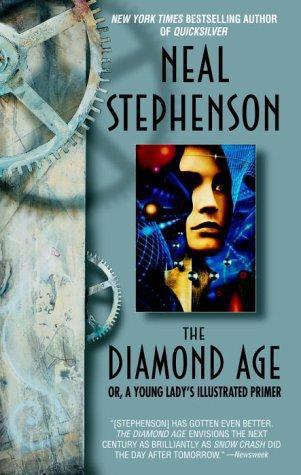
The Diamond Age
by
Neal Stephenson
Published 2 May 2000
New Atlantis has many fine artists." "Oh, come now. Why do all of them come from outside the tribe, as you did? Really, Mr. Hollywood, would you have taken the Oath at all if your prominence as a theatrical producer had not made it advantageous for you to do so?" "I think I will choose to interpret your question as part of a Socratic dialogue for my edification," Carl Hollywood said carefully, "and not as an allegation of insincerity on my part. As a matter of fact, just before I encountered you, I was enjoying my cigar, and looking about at London, and thinking about just how well it all suits me." "It suits you well because you are of a certain age now.
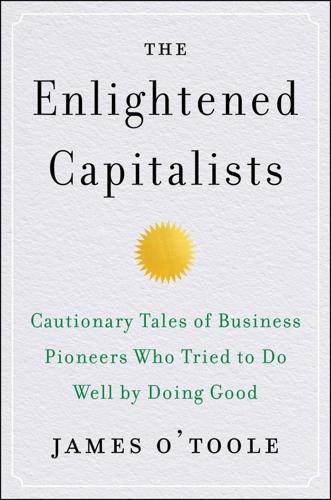
The Enlightened Capitalists
by
James O'Toole
Published 29 Dec 2018
Because the risk-taking waterline is subjective in any company, and dependent on varying circumstances, Gore would enter into a dialogue with his people, analyzing the various real and hypothetical situations they would posit, engaging with them for as long as it took for a shared consensus to emerge on what constituted a waterline decision. Such discussions took a long time; in fact, they were ongoing at W. L. Gore & Associates. One purpose of those Socratic dialogues was to allow Gore to communicate and reinforce the company’s principles, purpose, and philosophy. In effect, it was through such continuing discussions that Gore’s associates came to understand fully why the company was structured as it was, and what they should do to make it succeed without the need of constant supervision or time-wasting approvals from higher-ups.
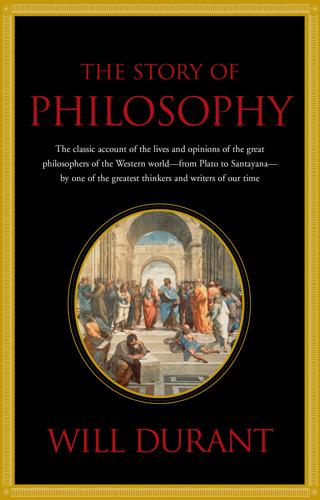
The Story of Philosophy
by
Will Durant
Published 23 Jul 2012
.) $2.50. Plato: Works of, edited by Prof. Irwin Edman. (Simon & Schuster.) $2.50. Plato: Republic. Translated by Jowett. (Oxford.) 2 volumes. $2.85. Plato: Republic. Translated by H. Spens. Everyman’s Library. (Dutton.) $.80. Plato: Dialogues. Everyman’s Library. (Dutton.) $.80. Plato: Four Socratic Dialogues. Translated by Jowett. (Oxford.) $1.70. Aristotle: Ethics. Translated by D. P. Chase. Everyman’s Library. (Dutton.) $.80. Aristotle: Ethics. Translated by Bishop Welldon. (Macmillan.) $2.75. Aristotle: Politics. Translated by Jowett. (Oxford.) $1.70. Aristotle: Politics. Translated by William Ellis.
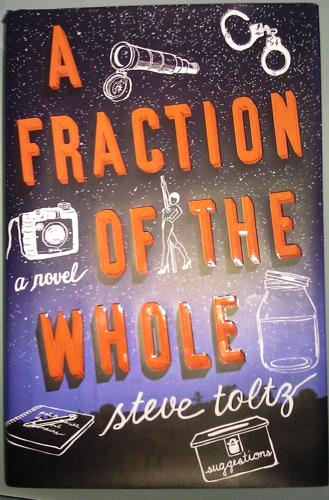
A Fraction of the Whole
by
Steve Toltz
Published 12 Feb 2008
Sometimes you'll be walking in the city late at night, and a woman walking in front of you will spin her head around and then cross the street simply because some members of your gender rape women and molest children!" Each class was equally bewildering, covering a diverse range of topics. He tried to encourage me to engage him in Socratic dialogues, but he wound up doing both parts himself. When there was a blackout during an electrical storm, Dad would light a candle and hold it under his chin to show me how the human face becomes a mask of evil with the right kind of lighting. He taught me that if I had to meet someone for an appointment, I must refuse to follow the "stupid human habit" of arbitrarily choosing a time based on fifteen-minute intervals.

The Impact of Early Life Trauma on Health and Disease
by
Lanius, Ruth A.; Vermetten, Eric; Pain, Clare
Published 11 Jan 2011
Guided by the therapist, the patient identifies and challenges distortions created from the trauma in three cognition domains:€the self, others and the world. Patients learn to replace or change these cognitive distortions with more adaptive and healthy beliefs through the examination of beliefs using Socratic Dialogue and Challenging Beliefs worksheets. Disruptive or dysfunctional beliefs are often referred to as “stuck points,” making them more concrete and thus more challengeable. Common byproducts of traumatic experiences include feeling out of control or feeling hopeless. Therefore, CPT focuses on personal safety, trust, power/control, esteem and intimacy within each of the three domains.

Liberalism at Large: The World According to the Economist
by
Alex Zevin
Published 12 Nov 2019
He also penned lively books updating the Cobdenite trinity of peace, retrenchment and reform for a new era in Free Trade and Other Fundamental Doctrines of the Manchester School in 1902, Local Government in England (co-authored) in 1903, Adam Smith in 1904, Monopolies, Trusts, and Kartels in 1905. Arbiter in Council, written in 1906, was a Socratic dialogue on war from biblical times to the present. It made the case for international arbitration, and raised his profile with yet another strata of liberals: the legal scholar F. W. Maitland, the world’s richest man Andrew Carnegie and his Endowment for International Peace, and Sir Robert Reid, future Lord Chancellor, with whom Hirst worked on proposals to revise maritime law (for the free passage of merchant ships in wartime) at the second Hague Conference in 1907.31 Amidst all this he married Helena Cobden, Richard’s great-niece, in 1903 – and travelled widely.
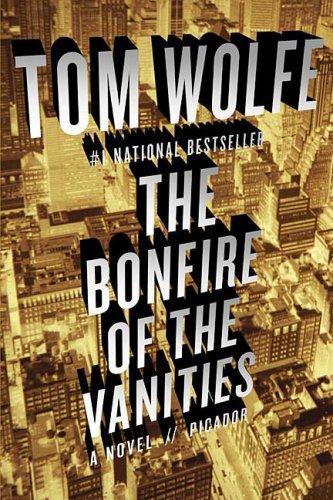
The Bonfire of the Vanities
by
Tom Wolfe
Published 4 Mar 2008
I’ll give you an audit…right away. I’m gonna tell you something. I’m gonna tell you something about capitalism north of Ninety-sixth Street. Why do you people think you’re investing all this money, your $350,000, in a day-care center in Harlem? Why are you?” Fiske said nothing. Reverend Bacon’s Socratic dialogues made him feel childish and helpless. But Bacon insisted. “Now, you go ahead and tell me. I want to hear it from you. Like you say, we’re going to have an audit. An audit. I want to hear it from you in your own words. Why are you people investing all this money in a day-care center in Harlem?
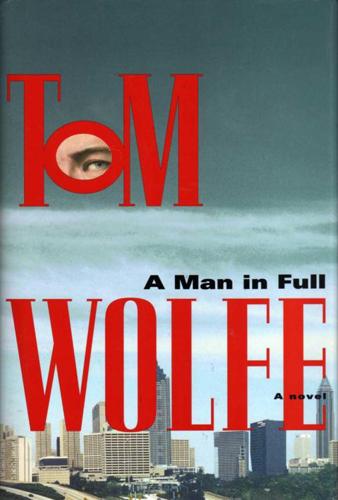
A Man in Full: A Novel
by
Tom Wolfe
Published 31 Mar 2010
Smiley, Rudy Brauer... they had this end named Goodykoontz, I remember him .. "Unnh-hunnnh," said Fanon, "but what'd they be?" "Wha'ya mean, what?" said Charlie. Fanon said, "How many uv'em was African Americans?" Roger sagged back in his chair and closed his eyes. He knew exactly where this little Socratic dialogue of Fareek's was heading. Why had he, Roger Too White, been so foolish as to tell Fareek that all the records set by Southeastern Conference greats of long ago didn't mean but so much, because all black athletes were shut out of the competition by racial segregation? Why had he told Fareek that at the very least all the records in the record books of that time should have asterisks with a footnote reading "Black athletes"—or, rather, "African-American athletes"—Fareek had already picked up the new nomenclature on his own—"African-American athletes denied access to Conference schools"?
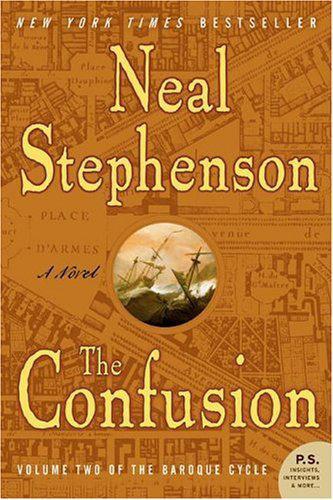
The confusion
by
Neal Stephenson
Published 13 Apr 2004
Has he recovered from that nasty rash?” “You have quite lost me, sir. I do not even know the name of the Duke of Parma, much less the medical condition of his youngest son.” “That was already obvious,” said Leibniz, “for he has no sons—two daughters only.” “I am beginning to feel like the Dim Interlocutor in a Socratic dialogue. What is your point?” “If you asked the Duke of Parma about Leibniz, he might recognize the name vaguely, but he would know nothing of Natural Philosophy, and of course it is absurd to think he would entrust a daughter to me, or you, on a journey. Almost all the nobility are like the Duke of Parma.
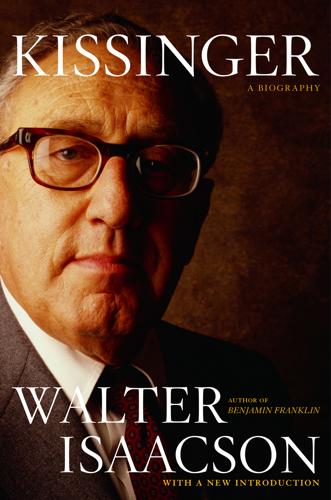
Kissinger: A Biography
by
Walter Isaacson
Published 26 Sep 2005
“There is nothing instructive in what I wrote.” “The Chairman’s writings moved a nation and changed the world,” said Nixon. “I’ve only been able to change a few places in the vicinity of Beijing,” Mao replied. Rather than discoursing on his worldview, Mao conveyed his thoughts through a bantering Socratic dialogue that guided his guests, with deceptive casualness, toward his conclusions. His elliptical comments seemed to Kissinger like the shadows on the wall of Plato’s cave, in that they reflected reality but did not encompass it. For the rest of the week, Chinese officials would cite Mao’s phrases from the hour-long meeting as being concrete guidance verging on gospel.